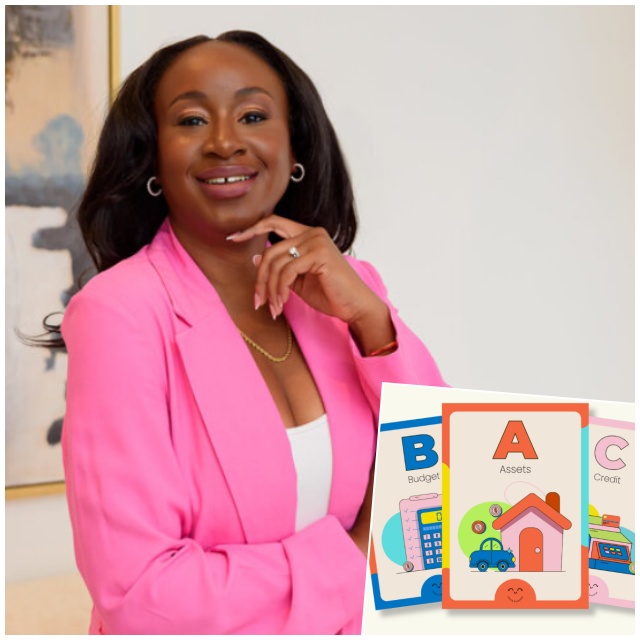By Layla Eason,
Special to the AFRO
In honor of National Financial Literacy Month, the AFRO explored how to build positive, healthy financial habits in youth and how to improve Black representation in the finance world.

(Credit: Photo courtesy of fmsadvisory.com)
Festina Manly-Spain has made it her mission to aid children in understanding financial literacy. She works to foster generational wealth by exposing youth to finance topics and careers in the finance industry. As a certified public accountant, she spoke with the AFRO about representation in her field, the mentors who put her on the path to success and building financial literacy in the Black community– starting with children.
Entrepreneurship and Black finance professionals
Q: How many Black people are in the finance space? And how often do you come across women who are of color in this area of work?
A: There aren’t a lot of us. I believe the statistics say less than [5 percent] are Black. I believe that number is even smaller when it comes to females because finance has been a male-dominated space. You don’t see so you don’t see a lot of females in this space.
When we’re in college, we’re groomed to get internships and go into the workforce of the world. These are great places to learn but they don’t teach you about entrepreneurship.
Q: Can you talk about some of the people who helped you get on this path to entrepreneurship? Who were some of your mentors? Who were some of the people who you look up to in this line of work?
A: Within my own family, my mom is an entrepreneur. She had her own business and I saw that growing up. I was in awe of that. This was when I was very little and it left a lasting impression on me. I never thought I was going to be an entrepreneur, but she left that imprint in my head like “this is what you’re going to do.”
There are also mentors in my field, people that I’ve worked with as well. Although they didn’t take the entrepreneurship path, they really helped me sharpen up my skills in order to do what I’m doing now.
Q: Can you go back to the business that your mom had? What kind of business was that?
A: We are from Sierra Leone, West Africa, where being an entrepreneur is not an outlier. It is very common for people to venture out into business for themselves, and that’s one of the most common jobs you will see. I think in that context, it wasn’t anything special, but when you flip it and you’re in the United States–and we’ve been here for most of my life–looking back she was doing something great.
She was a female and she had her own business. She had staff! She was doing something incredible that most people here are not. They may be scared of doing that, they may not be empowered to do that.
In that context , she was very much empowered, and our family supported her. My dad supported her, her parents supported her. I think that a support system is necessary when you are in the entrepreneurship field.
Q:What can be done to steer Black people toward finance careers?
A: Historically, Black communities have faced systemic barriers to accessing financial education and opportunities in finance-related career fields. To address this disparity, concerted efforts are needed to increase representation and diversity within the finance sector.
One approach is establishing mentorship programs and networking opportunities specifically tailored to aspiring Black professionals interested in finance careers. These initiatives help bridge the gap between ambition and opportunity by connecting aspiring talent with seasoned professionals who can provide guidance and support.

Q: Diversity, equity and inclusion (DEI) programs across the country are being cut. Why is it important to keep these programs in the finance industry?
A: Promoting diversity and inclusion within financial institutions is essential for fostering an environment where all individuals feel valued and empowered to succeed. By implementing inclusive hiring practices, offering professional development opportunities and creating supportive workplace cultures, organizations can attract and retain diverse talent.
Cultivating financial literacy in youth and promoting diversity within finance careers are integral steps toward building a more inclusive and equitable financial landscape. Collaborative efforts between families, schools, communities and organizations empower future generations to achieve financial success and create a more diverse, vibrant finance industry.
Financial literacy in the Black community
Q: Where do challenges with money and financial literacy in the Black community stem from?
A: It’s a conversation that is not being had in the household–and especially in Black households. This is not something we’re sitting down and actively talking about. I think that is the biggest gap: we see money as something passive. In reality, money is something that we should be actively seeking and actively talking about–especially for Black and minorities.
Financial literacy for students
Q: You have a program called “Little Finances,” what inspired you to strike out and start this?
A: My daughter was a source of inspiration for me. The program “Little Finances” was born to break that taboo mindset of not talking about money with younger children. Studies have even shown that teaching kids about money empowers them. In the program, I try to subconsciously put financial literacy vernacular in their world, which aids them in grasping the concepts of basic finance. This eventually inspired the financial literacy alphabet flash cards.
My daughter was curious about money. She would ask me what the dollar bill was. When we were in the grocery store, she’d be curious about my debit card. So that’s when we created, together with my daughter, the ABC’s of money flash cards. We’re taught that “A is for apple.” We’re never taught that “A is for assets.” Why is that? Because we don’t have the conversation.
My number one goal is to empower my daughter and little ones by letting them know that money is a positive thing. I found that talking with business owners and adults in general, they speak about money in a negative emotion at times. I aim to change that narrative and reflect a positive emotion towards it because money should be used as a tool that helps us reach our goals.
Q: How does learning about money at an early age set children up for the future?
A: Fostering financial literacy begins at home, where parents play a pivotal role in modeling responsible money management behaviors and discussing financial concepts with their children from an early age. This includes teaching the basics of budgeting, saving, and the importance of investing for long-term financial security.
Q: We know that schools teach math- but what can they do to help students build financial literacy?
A: Integrating financial literacy into schools equips students with essential life skills that extend beyond the classroom. Incorporating practical lessons on topics such as banking, credit, taxes, and entrepreneurship helps prepare students to navigate the complexities of personal finance in adulthood.
Some companies are targeting Black youth to teach them how to handle their finances and work within financial industries due to there being such a low number of us in it.
The responses above have been edited for length and clarity.
The post Ask a CPA: Festina Manly-Spain speaks on inspiring the next generation of youth and finance professionals appeared first on AFRO American Newspapers.










